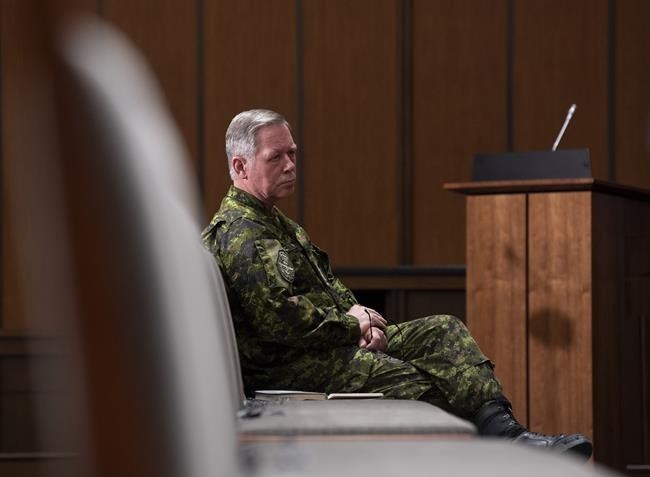Testimony before the House of Commons defence committee has revealed that the federal defence minister, Harjit Sajjan, sat on allegations of sexual misconduct against Gen. Jonathan Vance for three years and made no public comment.
As chief of the defence staff from 2015 until January of this year, Vance was Canada’s most senior military officer.
In 2018, allegations were made that Vance had had an inappropriate relationship with a female subordinate. There was also, reportedly, an allegation that he had sent a racy email to another junior staff member. It is important to note than none of these assertions has been proven.
When the complaints first became known, Canadian Forces ombudsman Gary Walbourne brought them to Sajjan’s attention.
Walbourne reportedly told the minister he lacked the power to conduct his own investigation, and therefore placed the matter in Sajjan’s hands.
But Sajjan refused to act. First, he insisted that Walbourne could turn the evidence over to military police investigators. Walbourne said he had not the complainant’s permission to do this.
Pushed further, Sajjan disclaimed any role in the matter. He argued that, “Drawing an elected official — a politician — into the sequence of an investigation would have been wrong and dangerous. Politicizing any investigation threatens a just outcome for those who come forward.”
This is more than disingenuous. It displays a failure on Sajjan’s part to understand the nature of parliamentary government, and his role in it.
Yes, he is a politician, and yes, politicizing an investigation would be wrong.
But “politicizing” an issue means taking advantage of it for partisan reasons. No one is suggesting that Sajjan do that.
In Canada, unlike the United States, cabinet ministers are almost always members of Parliament. That is to say, unavoidably, they occupy a joint role, both as politicians, but also as members of the governing executive.
In addition, for a minister to assert that he cannot be involved in matters that fall directly within his purview because he is an elected official, makes nonsense of the principle that our armed forces operate under civilian control.
Then look what has happened. Three whole years have passed since these serious allegations were made, and we are none the wiser as to what, if anything, occurred.
This is unfair to the complainant. It is unfair to Vance, whose reputation is damaged by unrefuted allegations left hanging over him.
And most important, it is unfair to the men and women in Canada’s military service, who are entitled to expect that allegations of this sort will be promptly addressed.
Making things worse, complaints have now been made about the officer who succeeded Vance as chief of the defence staff, Admiral Art McDonald. While this matter is being examined by the Canadian Forces National Investigation Service, McDonald has voluntarily stepped aside.
Two pictures emerge here, neither of them complimentary. First we are left with the worrying suspicion that sexual misconduct is by no means rare in the Canadian military establishment.
Indeed, it is more than a suspicion. We now know, through access-to-information legislation, that Canada’s military police have received, on average, 178 complaints of sexual assault every year since 2000. We also know that many more assaults go unreported.
Second, it appears the process for following up such allegations is well nigh moribund. The officer who reported the complaint about Admiral McDonald told the House defence committee that he had faced a maddening maze of bureaucracy, both within the military, but also at the political level.
Indeed, he reported being chewed out by a senior colleague who told him he was ruining the admiral’s career “over nothing.” Evidently there is a culture of denial in the upper ranks of our military.
The question is what can be done. When the minister in charge ducks all responsibility, the impression is left that, at the highest levels, support for a cleanup is lacking.
That has to change. The prime minister must make clear that sexual misconduct is a serious matter, and that the defence minister has been told to take personal charge.
We are by no means suggesting a witch hunt. The vast majority of men and women who stand on guard for our country are honourable and dedicated members of the service. And to repeat, the allegations in question have not been verified.
But what we do need is a searching examination of our armed forces to ensure rank and power are not being abused, in any shape or form.



